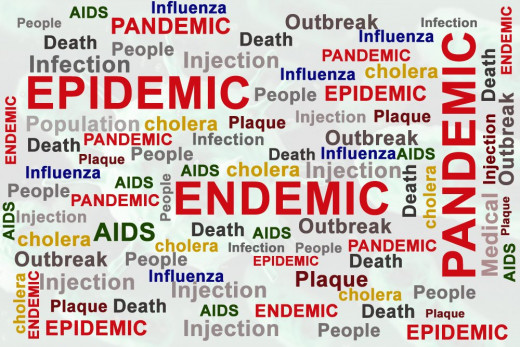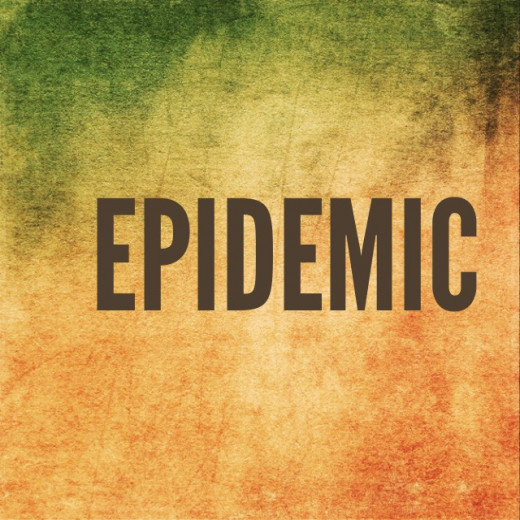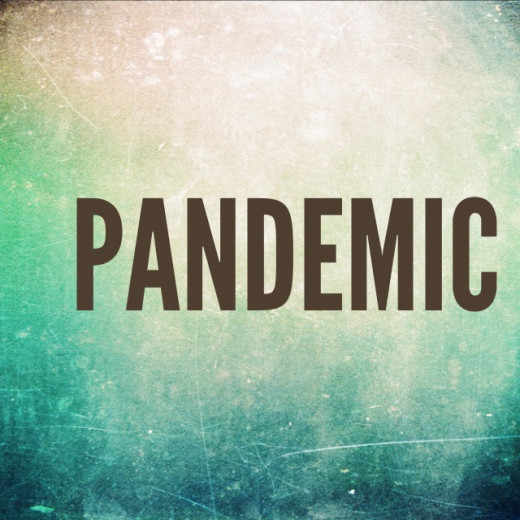Epidemic Vs. Pandemic: What's the Difference?

It is not surprising that some people get the words epidemic and pandemic mixed up. Some people classify the spread of every disease as an epidemic. There are also some people who categorize the spread of all diseases as a pandemic.
The two words have different meanings and characteristics. Once you learn what they are, you might always remember the differences.
Coronavirus (COVID-19)
The outbreak of coronavirus, known as COVID-19, is an infectious disease, has killed 3,202 people worldwide. It started in 2019 and is still ongoing.
The disease was first identified in Wuhan, Hubei, China. The numbers are expected to change. As of this writing, more than 93,000 cases have been confirmed over 80 countries and territories. The number of death from the disease has risen to 3,200 people worldwide. Of that number, 3,000 deaths have been in China where the disease started. The remaining 220 deaths have been in other countries. Fortunately, more than 50,000 people who were diagnosed with the infectious disease have recovered.
So far, these have been 126 confirmed cases of the disease in 13 states with at least nine COVID-19 deaths in Washington state,
Is coronavirus an epidemic or a pandemic?

Epidemic: Definition
An epidemic is the rapid spread of an infectious disease to a large number of people in one area within a short period of time. In order for a disease to be an epidemic, the following conditions must exist.
- The disease must be infectious. Every disease is not infectious. For instance, heart disease and diabetes are not infectious.
- The timing for the spread of the infectious diseases is charted over a short period of time that is usually two weeks or less.
- The number of people affected determines if an infectious disease is an epidemic. An epidemic affects not just a few people. Instead, it affects a very large number of people.
- An epidemic involves a disease that is actively spreading.
An example of an epidemic was SARS that stands for Severe Acute Respiratory Syndrome that occurred in 2003 that led to nearly 800 deaths.
When an infectious disease is in a larger area or even worldwide, it becomes a pandemic.

Pandemic: Definition
A pandemic is more serious than an epidemic. It usually starts out as an epidemic and progresses to a pandemic. It is a geographic spread of an infectious disease across a large region. It could be over several continents or worldwide. It is not a pandemic if the disease is stable and fewer people are getting sick from it.
Like an epidemic, a pandemic involves an infectious disease. Cancer is not an infectious disease. Even though it is widespread it is not contagious. A pandemic is a global disease outbreak like HIV/AIDS.
Examples of Pandemics
Influenza pandemics have occurred more than once.
- In 1918, Spanish influenza killed 40-50 million people.
- In 1957, Asian influenza killed 2 million people.
- In 1968, Hong Kong influenza killed 1 million people.
Is COVID-19 an Epidemic or Pandemic?
COVID-19 has all the characteristics of a pandemic because it is infectious. It has affected a large number of people in many countries and over the entire world. It was an epidemic when it was only in China. Once it began spreading and out of control, it became a pandemic. Therefore the answer is a definite "Yes."

Another Word: Endemic
Most people have heard the terms epidemic and pandemic. There are other words associated with diseases. Another word is endemic. It describes a disease that exists permanently in a particular region or population. There is a steady flow of an infectious disease that doesn't die out nor does the number of infected people increase exponentially.
Examples include malaria in parts of Africa. Chickenpox is endemic in the United Kingdom, but malaria is not.

Another Word: Syndemic
A syndemic is the combination of two or more epidemics or diseases occurring in a place at the same time. A person having HIV and STD at the same time constitutes a syndemic. The coronavirus and the flu occurring at the same time can be described as a syndemic. To prevent a syndemic from occurring, each disease must be controlled.








